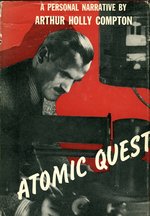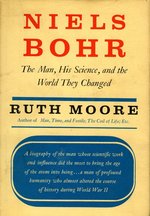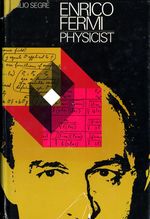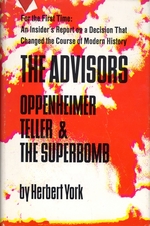Nuclear science experienced temendous growth between the late nineteenth century and the end of the Cold War. This progress, though a product of international academic and military competition, was born out of the intelligence and perseverance of the thousands of hardworking scientists who dedicated their careers to exploring the radiation and nuclear sciences. From the original pioneers of radiation to the men and women behind the United States' offensive nuclear program, many of these researchers have left behind memoirs and biographies detailing their experiences on the cutting edge of science and technology.
Much ink has been spilled on the subject of Pierre and Marie Curie's field-changing discoveries and Ernest Rutherford's uncanny knack for experimentation.123 Niels Bohr also has been a central figure in atomic history with thousands of pages dedicated to exploring his brilliance, idiosyncrasies, and contributions to science.4 These were the minds that opened up an entire field of study and allowed us to manipulate some of the most basic principles of our universe.
Their successors, too, have recorded their stories. J. Robert Oppenheimer, the father of the atomic bomb, wrote much on his life and work, as have many of his wartime colleagues including Edward Teller and Arthur Compton.567 Other accounts have been given by family members or collaborators, as in the case of Laura Fermi's exploration of immigrant scientists in the United States.8 It is a testament to the sheer scope of the field that even politicians and spies have been adopted into this patchwork canon.910
Nuclear history is, at its core, a history of the twentieth century. Its successes and failures, criticism and support, breakthroughs and setbacks both defined, and were defined by, popular history. And behind all of that, in the labs and factories, were the rank-and-file scientists working hard to create something new and valuable. A few have been generous enough to leave behind some of their memories and others still have worked to recreate the past and remind us of our history.
Notes
- 2702. Curie, Marie. Pierre Curie. New York: Macmillan, 1923. QD22.C82 C8. Return to text ↑
- 2700. Curie, Eve. Madame Curie. A Biography. Garden City: Doubleday, 1937. QD22.C8 C85 1937. Return to text ↑
- 2704. Eve, A.S. Rutherford. Being the Life and Letters of the Rt Hon. Lord Rutherford, O.M. Foreword by Earl Baldwin of Bewdley. New York: Macmillan, 1939. QC16.R8 E9. Return to text ↑
- 2962. Bohr, Niels. Niels Bohr; His Life and Work as Seen by His Friends and Colleagues Amsterdam: North-Holland Pub. Co.; New York: Wiley, 1967. Return to text ↑
- 2728. Oppenheimer, Robert: Letters and Recollections. Edited by Alice Kimball Smith & Charles Weiner. Cambridge: Harvard, 1980. Return to text ↑
- 2739. Teller, Edward. The Reluctant Revolutionary. Columbia: U. of Missouri Press, 1964. Q147 .T4. Return to text ↑
- 2698. Compton, Arthur Holly. Atomic Quest. A Personal Narrative. New York: Oxford University Press, 1956. TK9153 .C6. Return to text ↑
- 2705. Fermi, Laura. Illustrious Immigrants. The Intellectual Migration from Europe 1930-1941. Chicago: University of Chicago Press, 1968. E184.A1 F47. Return to text ↑
- 2741. Truman, Harry S. Mr. Citizen. New York: Bernard Geis, 1960. E814 .A33 1960. Return to text ↑
- 2743. Williams, Robert Chadwell. Klaus Fuchs, Atom Spy. Cambridge: Harvard, 1987. UB271.R9 F838 1987. Return to text ↑




